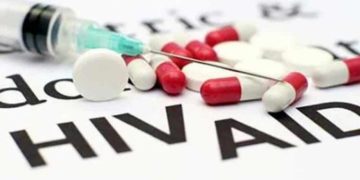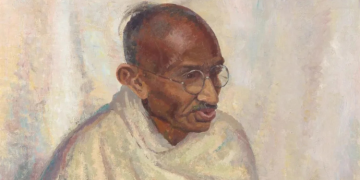The government is considering stopping out-of-campus accommodation for university students.
A recommendation by the National Authority for the Campaign Against Alcohol and Drug Abuse (NACADA) seeks to make it mandatory for university students to reside within institutions.
Alternatively, the students can stay in accredited privately managed hostels.
Speaking during the launch of the status of drugs and substance abuse in Kenyan universities, Interior Cabinet Secretary Kipchumba Murkomen said that the government will work with the authority and universities to implement the recommendations.

The proposal seeks to curb rising cases of drug abuse, insecurity, and indiscipline among students, which NACADA partly attributes to the lack of structured accommodation.
If implemented, the policy would require universities to either expand their on-campus housing or collaborate with regulated private hostels to ensure a controlled environment for students.
“The university management to consider mandatory accommodation of university students within the institutions and in accredited privately managed accommodation facilities outside the university,” the statement from NACADA read in part.
Also Read: No Classes at Moi University as Lecturers Announce Another Strike
Other Recommendations Made for Universities and Students
The recommendations, which emphasize prevention, mentorship, rehabilitation, and stronger enforcement, seek to address the rising cases of drug abuse, mental health challenges, and indiscipline in higher learning institutions.
Among the key proposals is the rollout of sustained Drug and Substance Abuse (DSU) prevention programs, including mentorship tailored to vulnerable student populations.
Additionally, universities have been urged to strengthen their guidance and counselling departments to provide timely interventions for students battling substance use disorders (SUDs), mental health issues, and unresolved trauma.
NACADA has also recommended collaboration between universities and chaplaincies to integrate faith-based programs in substance use prevention efforts.
Parents and guardians have also been urged to play a more active role in monitoring and guiding their children throughout their academic journey.
Further, the government has been called upon to provide affordable and accessible rehabilitation services tailored specifically to university students struggling with addiction.
Universities were also encouraged to establish long-term support programs for recovering students, including continuous mentorship, counselling, and monitoring to prevent relapse.
To further promote sobriety, NACADA has recommended the creation of vibrant recovery communities within universities, where students on the path to recovery can receive emotional and social support.
Moreover, NACADA is proposing collaboration between university management and law enforcement agencies to guarantee drug-free spaces within institutions and their surroundings.
The authority has also recommended that institutions of higher learning be included in the 300-meter rule under the Alcoholic Drinks Control Act, 2010, which restricts alcohol-selling establishments from operating near schools and learning institutions.
Also Read: NACADA Boss Omerikwa Receives Global Award in Nigeria
Findings From the NACADA Report
The report revealed that 45.6 percent of Kenyan university students have used at least one drug or substance in their lifetime.
The Status of Drugs and Substance Use Among University Students in Kenya study highlights alcohol (40.5percent), cigarettes (13.4percent), shisha (10.9percent), vapes (8.5percent), and nicotine pouches (4.6percent) as the most commonly abused substances.
Additionally, miraa (10.1 percent), muguka (9.9 percent), smoked cannabis (14.9 percent), and cannabis edibles (11.9 percent) were prevalent among students.
In the past 30 days, 26.6 percent of students admitted to drug use, with higher rates in private universities (35.1 percent) compared to public institutions (22.6 percent).
Follow our WhatsApp Channel and join our WhatsApp Group for real-time news updates




![Debate Rages Over Proposed Increase In Legal Drinking Age [Video] Nacada Raises Legal Drinking Age From 18 To 21]( https://thekenyatimescdn-ese7d3e7ghdnbfa9.z01.azurefd.net/prodimages/uploads/2025/07/beer-360x180.jpg)



































































![Debate Rages Over Proposed Increase In Legal Drinking Age [Video] Nacada Raises Legal Drinking Age From 18 To 21]( https://thekenyatimescdn-ese7d3e7ghdnbfa9.z01.azurefd.net/prodimages/uploads/2025/07/beer-120x86.jpg)